Once again, I would like to tell you about the magnificent work that the National Transplant Organization (ONT) of Spain, since it started, in 1989.

The ONT turns 30 years old with an unbeatable state of health. Spain returns to lead the world ranking of donations and transplants one more year, and there are 27 consecutive. A success that, according to the General Director of the organization, Beatriz Domínguez-Gil, is due to the combination of three elements: the solidarity of citizens, the Spanish health system and a well-designed protocol for action.
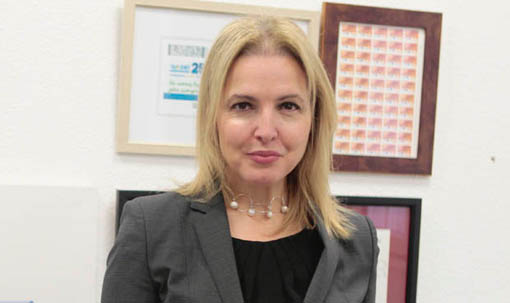
Beatriz Domínguez-Gil
Domínguez-Gil has explained that solidarity and the health system are essential, but by themselves they do not justify the success of the system, which comes hand in hand with what is known internationally as the Spanish model of transplants. "Basically, it is a management model, an organizational model that has defined very well which professional, in what unit, how and according to what protocols it has to act to make donation possible", Beatriz emphasises.
The data presented by the Ministry of Health, on last Monday 7, show an increase in donations of 37%, in the last five years, which means that there are 48 donors per million people, and is very close to the goal of reaching 50 donors per million people, in 2022, framed in the '50x22 Plan'. It should be noted that the index of the next country on the list of donors, the United States, is 31.7 donors per million people.
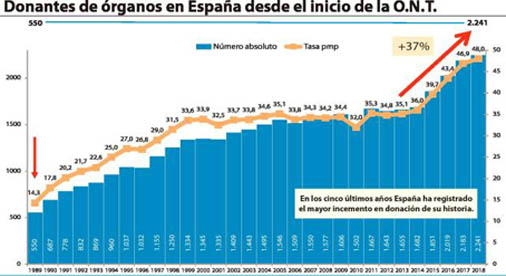
Index of donors in Spain
The ONT estimates that of the people, who die in a hospital, only between 1% and 2% do so in conditions of being donors. "The key to the Spanish model is that it is designed to transform those opportunities into real donations", says Domínguez-Gil.
A work that falls on the figure of the transplant coordinator, usually an intensivist --a doctor specializing in the care of critically ill patients-- who "systematically identifies these donation options and approaches the family in a moment of mourning, in a way that highly professionalised".
As a result of this work, nearly 85% of the families gave their consent to the donation of organs from their dead relative. From the ONT point out that it is because, above all, from the outset help families who have lost their loved person, usually suddenly and unexpectedly, in that moment of mourning. That is why Domínguez-Gil emphasises that there is a combination of factors: "We talked about solidarity, but it is also true that the system works in an equitable and transparent manner, and that makes citizens trust the system".
These factors have made Spain a reference in this health field. The ONT collaborates with various international organizations, through which it has transferred the keys to Spanish success to many countries; there are already several, who have replicated the model, totally or partially, and have experienced improvements.
The person in charge of the organism stands out, as a paradigmatic case, Croatia, that "copied all the elements of the Spanish model". They have also incorporated, elements of this system, United Kingdom and Portugal and even Canada or Australia. However, from the ONT, they feel particularly proud of the Latin American Network, where they have doubled their donation activity, since 2005, the year in which they began to collaborate.
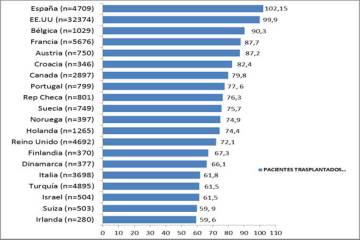
The list of transplanted pacients and their countries
Just below, on the left, you can see a graph with the rate of transplanted patients per million inhabitants --Mexico is at the top with 16.1 per million people-- and below, on the right, with Argentina (14) and Brazil (more than 12) at the head of cadaveric organ donation.
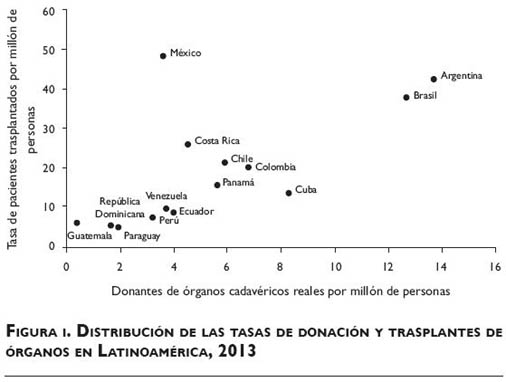
Some data on which the ONT brings out the best in itsself: "We can proudly say that we have saved more lives outside our borders than within Spain, through international cooperation programs", says its Director.
Therefore, one of the lines of work of the organization is to advance in international crossed renal transplants. The crossed kidney transplant emerges, as an initiative, in 2009 in Spain, to perform transplants by exchanging donors or kidneys, between donor and recipient couples, that are incompatible with each other. And, in August of last year, it was held, for the first time internationally, among patients from Italy and Spain.
One more step, that expands the possibilities of patients by increasing couples and genetic heterogeneity. From the ONT, they emphasise that "it is not going to bring its fruit in the form of very striking numbers, but it will bring options to patients who have special difficulties to be transplanted".
International cooperation is also positive to avoid sanitary tourism of transplants, since, according to Dominguez-Gil, "helping other countries, to offer as many transplant options as those offered in Spain, will prevent what happens or what may happen , which is the transfer of that problem to another country".
A transfer that, if it occurs, will increase the waiting lists, which vary depending on the type of organ and characteristics of the patients. The ONT indicates that there are patients whose characteristics make it more difficult to transplant than others; on average, the waiting time for a kidney transplant is between one year and a year and a half, while for the transplant of other types of organs it ranges between three and six months.
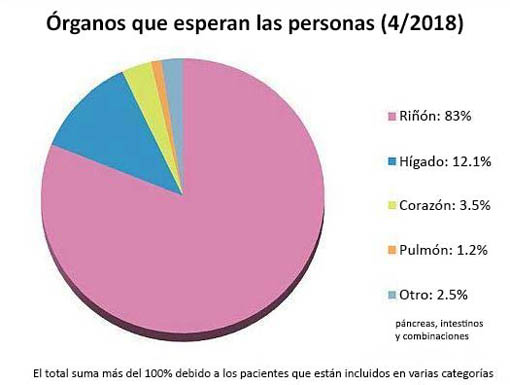
Organs waiting for some people
"Obviously, this calculation includes patients who, due to their characteristics, have more difficulties in transplanting, but they are very reasonable times and we can say, in addition, that most patients, who need a transplant, receive it on time", insists Domínguez-Gil.
Therefore, the ONT calls to avoid campaigns aimed at solving a particular case: "We understand that people, who promote this type of campaign, do so from their desperation and with the intention of helping, but it is important to say that they are not campaigns necessary and can be counterproductive".
In fact, our legislation does not allow campaigns directed to a specific person. In the area of marrow donation, this type of campaign is carried out most frequently, which the ONT emphasises is unnecessary because "the system is prepared to respond to the transplant needs of patients, who need it".
When a bone marrow donor needs to be found, outside of the family environment, it is done in the Spanish registry that is connected to other registries in the world, giving access to the 33 million people, who are registered as potential marrow donors, what you have to add 750,000 units of umbilical cord blood.
Domínguez-Gil asserts that a donor has never been found for the person for whom it was requested and invites the families, who want to collaborate to do so in cooperation with the health professionals in charge of the case or the regional transplants coordinators, the Josep Carreras Foundation, or the National Transplant Organization. "In such a way that those willingness to help, that energy, that initiative is transformed into a campaign that is adequate in form and substance, and that is much more effective and more appropriate to what is needed".
Well, I hope that you will like this article. If you know some experience about donations, please tell me as soon as possible.
Untill soon, kind regards,
Luis.
Sponsored by Costaluz Lawyers.
Please click below:
